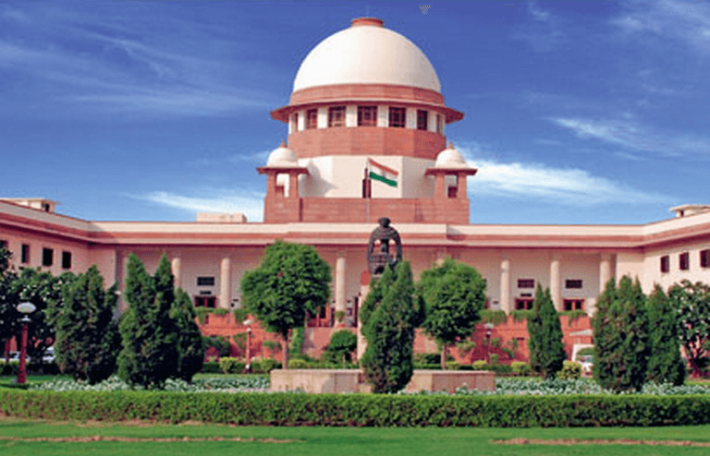

How did the order come into effect?
The 1963 Karnataka Police Act implied that 'Places of Amusement' need to issue a license to function as 'live music' is performed to attract more customers. Some restaurants and Karnataka Live Bands Restaurant Association approached the state's High Court in the matter and argued that their businesses lie under 'Places of Entertainment' and hence the act does not extend to their projects.
Their argument received legal and jurisdictional support when the then writ jury quashed the order of the then Commissioner (who ordered the restaurants to obtain license).
In 2005, the Bangalore Police issued the current 'The Licensing And Controlling of Places of Public Entertainment (Bangalore City) Order 2005' which gave rise to the second round of the litigation and hence the appeal. This time, however, the result did not end in the restaurants' favour. The restaurant owners argued that the Order is discriminatory in nature and not legally sustainable. The owners also argued that it infringes the fundamental right as guaranteed by the Constitution.
However, come 2018, and the Supreme Court justified the lower court's decision and upheld The Order. The top court further added that the Order "does not suffer from any legal infirmity and is therefore constitutional."
The Association emphasised that the Order is harsh and unfair, considering the fact that only three types of restaurants/venues fall directly under it; ones who host - live music band, cabaret dance and discotheques. Auditoriums, theaters and other venues stay unaffected with the Order as the bench suggested that these places do not involve any kind of obscenity or indecency whereas other venues do, unless controlled. In short, a BFlat will have to obtain the license but Jagriti Theatre cannot be compelled to.
While the rest of the 'to-dos' in the Order sound entirely fair and necessary, it is this author's opinion that two sub-clauses in the Order could be the major reason behind the restaurant owners and the Association's discontent with the outcome of this petition. Sub-clause (i) of Clause 7 wants the venues to ensure there is no obscenity or indecency in dress, movement or gesture and that performer cannot indulge in any kind of indecency. This Order puts the onus on the Public Commissioner of the city to "decide in its discretion having the regard to the totality of the entire fact situation as to what be brought within the ambit of this Order." Another sub-clause concerns the underground and independent music scene's recent infatuation with design and visual art. Sub-clause (j) expects the venues to not allow any obscenity in posters and creatives (unclear if this applies to the venue premises or the digital and on-ground activities too). It's quite clear that these sub-clauses may act as an obstacle to the evolving sub-culture.
What does it mean for the musicians?
Ram, a live music promoter and Bengaluru resident, believes the Order can have a negative impact on the evolution of live music scene in the city. Of course, what counts as immoral or obscene remains an ambiguous aspect, the venues will now be careful with their programming. To a certain section of society, metal or rock music is devil's creation but for a tiny fraction of live music consumers, it is poetry. The author reached out to two live music venues to understand if certain definition and degree of 'morality' was discussed, but could not receive a reply. The question arises, however, could particular genres, say metal or hip-hop, be heavily affected with the Order and its immediate consequences. Several metal bands and rappers are quite politcal and vocal about complex and regressive issues that revolve around subjects ranging from caste discrimination, politics to religion and sex. So what constitutes moral and decent solely lies in the power of the authority and, hopefully, this does not discourage venues from approaching certain acts.
So what now for the venues?
Bflat's owner Sunil Shetty expressed his dissatisfaction towards the ruling, but expects the authorities will be careful with their guidelines. "In an attempt to regulate dance bars, discotheques and other outlets, it's quite unfortunate that live music venues like ours fall under the Order's ruling. Venues like BFlat have been in existence for quite some time now, and even the city police know that we've never dealt with anything that is illegal or problematic. Although largely, I think this will only concern the dance bars and other similar restaurants," added Shetty, who's quite surprised that neither the Association nor the State has approached the venue following the latest judgment to discuss the guidelines.
It's quite clear that the order is here to stay. Here are a few things venues need to take care of:
It is also important to note that the failure to obtain the license gives the State legal authority to close a restaurant. Supreme Court maintained the implementation of the law ensures the safety, morality and structure of the society and neighbourhood at large. The Court also cited the recent unfortunate events in other metropolitan restaurants as a strong case to uphold the Order.
(We will follow this story further to understand the guidelines provided by the State for the venues to comply and more..)
Previous Article Yesterdrive, Skrat, The Ganesh Talkies to perform at Kerplunk's biggest edition Yesterdrive, Skrat, The Ganesh Talkies to perform at Kerplunk's biggest edition
|
Next Article No Guest List For Bengaluru No Guest List For Bengaluru
|


Leave a comment